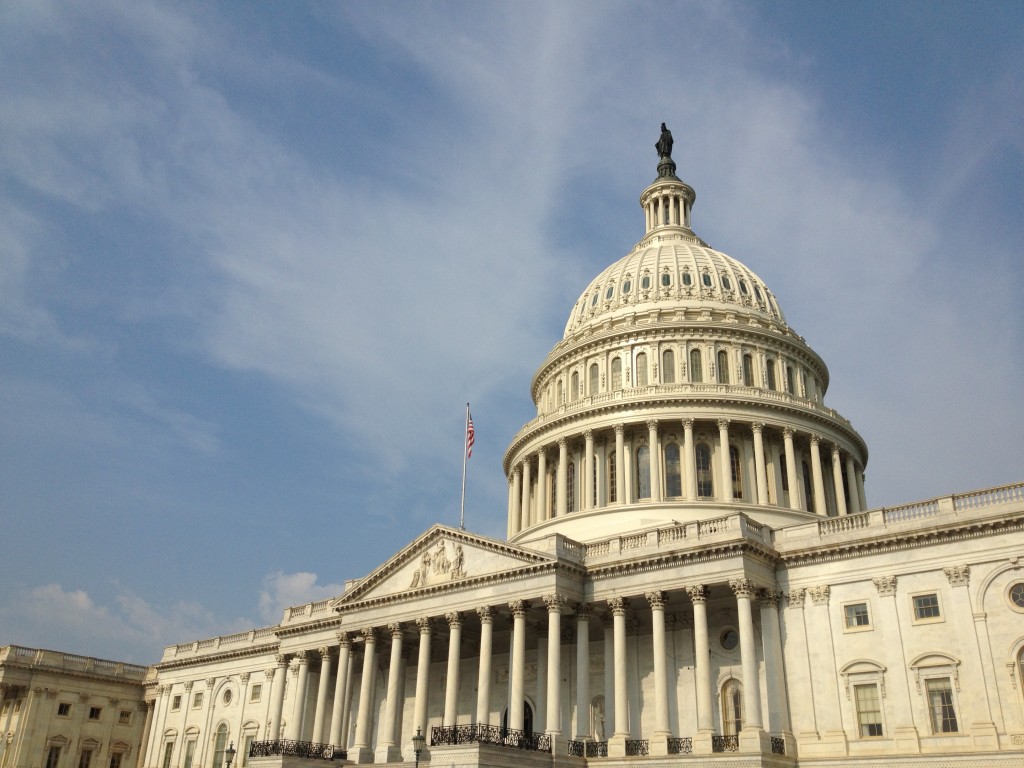Opinions do not necessarily represent CUIndependent.com or any of its sponsors.
What do you call a group of old white guys who can’t agree on anything besides the fact that the Papal visit to the capital is going to make traffic in D.C. even worse than usual? Congress. The modern political scene, while sensationalized by the media coverage of the Presidential race, is lacking in the one thing that is actually necessary for a Democratic Republic to function: the ability to compromise.
The biggest threat to the United States may not be the possibility of a president with the last name Trump and hair that may or may not be real, because if Congress can’t push past its current stagnation, it will not matter who the 45th President is.
The end of the month looms near, and with it the end of another fiscal year. Congress at the moment is deep within the bowels of another polarizing debate, this time over Planned Parenthood‘s funding. And while October brings with it the beginning of fall, there is much more on the minds of the politically in-tune than pumpkin spiced lattes; from the current looks of things, it seems that we will not make it past September 30, the last day for Congress to finalize the annual federal budget, without another government shutdown.
While congressional gridlock is the inevitable byproduct of the system of checks and balances built into our Constitution, the current stagnation in our country would have the founding fathers rolling in their graves. In the past, policy changes have been slow-moving, yet achievable. Today, it is akin to pulling teeth, as evidenced by the painful passages of Obamacare and the recent Iran Nuclear Deal. And while many are quick to point fingers at Obama for being a lame duck President, it is arguable that he was inaugurated into a system that predestined him for failure.
Since the 1970s, American politics have become increasingly polarized. The Democratic and Republican parties have consistently retreated further into their respective corners, and the median Democratic voter is further from the median Republican voter on the political spectrum than even 20 years ago. The public and politicians alike are becoming party-blind, and because of this, congressional activity has been at record lows. Democrats and Republicans have simply lost the ability to speak the same language, and as a result, America is suffering as a whole.
America has always claimed to be a nation built on the concept of liberty. Citizens of this country are able to enjoy many freedoms that citizens of authoritative regimes would not even dare to wish for, like freedom of religion, freedom of speech and freedom of press. All of these share one message in common: in the U.S., all are blessed with the liberty to speak and act on their own accord.
But how well can this freedom be exercised in our current political culture? The modern voter is far more likely to elect the congressional nominee from their party than the one who will bring about the most beneficial change. And once in Congress, that politician will act in a way which does not defy their party boundaries, lest they make themselves unmarketable for reelection. The irony of current U.S. political trends is that within a system rooted in liberty, progress is being shackled by polarization.
In a nation where we can no longer see eye to eye when it comes to public policy, maybe it is time we start talking about what it is that makes us so divided, and from there, build a framework from which compromise can once again be more than a far-fetched dream.
Contact CU Independent Staff Opinion Columnist Emily McPeak at emily.mcpeak@colorado.edu.

